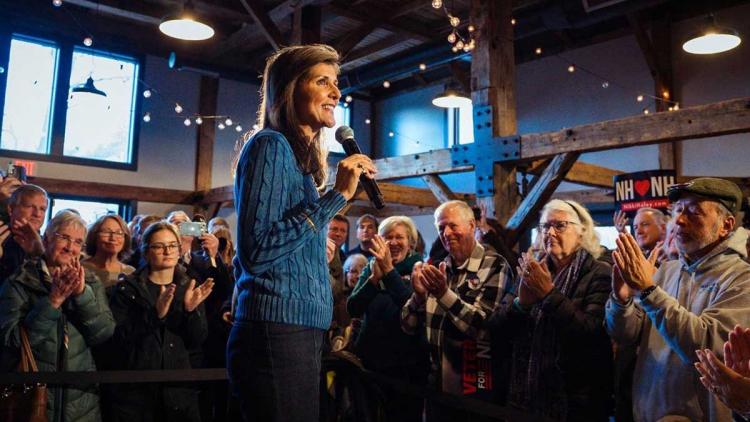The landscape of American politics has seen a significant surge in the participation and representation of Indian-Americans, marking an unprecedented presence in various key political arenas. With figures like Vice President Kamala Harris, potential Republican presidential candidates Nikki Haley and Vivek Ramaswamy, and a growing number of Indian-American legislators, this community has gained substantial visibility and influence.
The increased engagement of Indian-Americans in politics has been attributed to several factors, including a new generation of South Asians coming of age, reactions to Trump's election in 2016, and the precedent set by Barack Obama's presidency in showcasing that individuals of color could rise to leadership positions.
Vice President Kamala Harris's nomination as Joe Biden's running mate in 2020 sparked enthusiasm among Indian-American voters, contributing significantly to their turnout. Despite occasional accidental references to Harris as "President" by Biden, she has been actively involved in shaping domestic priorities and seems poised for a more substantial role if the Democrats retain control of the White House.
However, while Harris is leading initiatives on crucial issues like abortion, voting rights, and gun control, her approval ratings in polls mirror Biden's, standing at about 41%, indicating a level of stagnation in public perception.
The Samosa Caucus, representing Indian-American Democrats in Congress, plays a crucial role in the political landscape. Members like Pramila Jayapal, Ro Khanna, and others are actively engaged in policymaking and discussions on pressing national matters.
Indian-Americans, predominantly aligned with the Democratic Party, have made notable gains in recent elections. Democrats like Neil Makhija, Kannan Srinivasan, and Vin Gopal secured victories in various positions, highlighting the growing strength of Indian-American Democrats ahead of the 2024 elections.
Despite the Democratic lean among Indian-American voters, there is a notable segment identifying as Republicans. However, differences in economic policies, particularly concerning healthcare, often sway Indian-Americans towards the Democrats.
The entry of Nikki Haley and Vivek Ramaswamy into the Republican presidential race was initially anticipated to reshape perceptions among Indian-Americans. However, their stances on issues related to race, identity, and immigration left some members of the community disconcerted. Ramaswamy's proposal to dismantle the Education Department was viewed unfavorably by many, contributing to a lower favorability rating among Asian-American and Pacific Islander adults.
Overall, the presence and participation of Indian-Americans in American politics have grown significantly, although varying ideologies and policy positions continue to shape their engagement and support across party lines.
(With Agency Inputs)
ALSO READ | Trump Outshines Nikki Haley on Home Turf at Clemson University in South Carolina


















